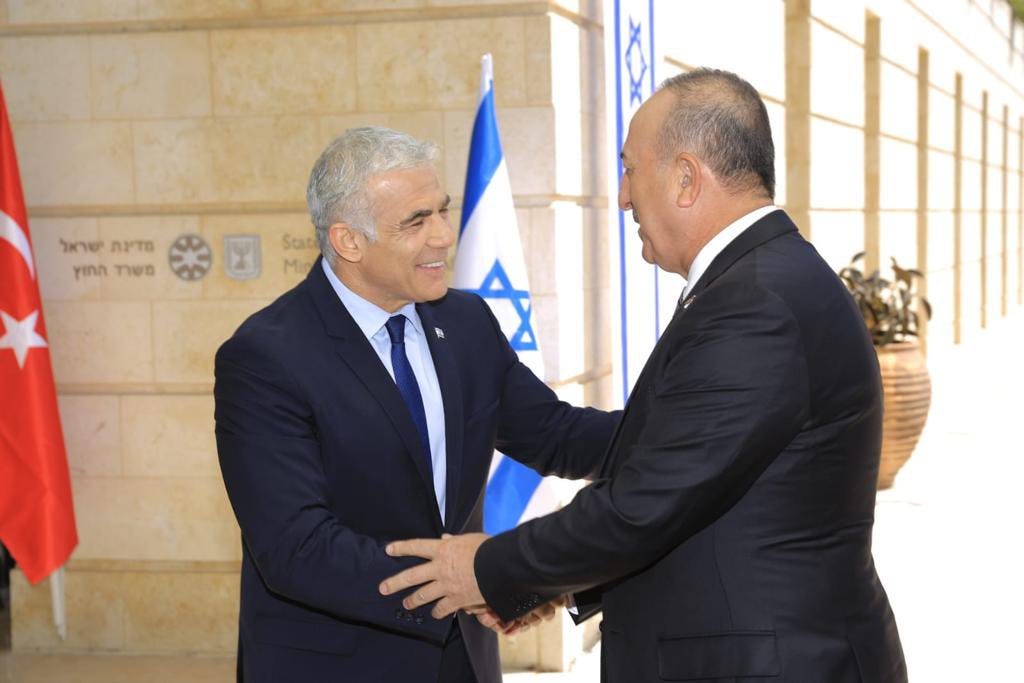Israel Update Week Ending May 27
Crazy Politics,Iran Assassination,Bank of Israel Raises Prime and more
POLITICS
Israeli politics continues to be more chaotic than usual this week. Last week’s crisis, with MK Ghaida Rinawie Zoabi, was resolved on Sunday, after she attended a meeting with heads of the eight Arab municipalities, together with Yair Lapid. Rinawie Zoabi exited the meeting and stated she would return to the coalition. During the meetup, the Arab mayors made clear that the alternative to the current government would be terrible for them. Therefore, despite whatever criticism they might have of the current government, they find it preferable to any possible alternative. For his part, Lapid promised to eliminate some of the bureaucratic delays holding up the disbursement of some of the money budgeted for the Arab Israeli communities.
As soon as this crisis was resolved, the government faced a new challenge, when they attempted to pass a law that called for 2/3 payment of college education for combat soldiers. Although the previous government initially proposed this same law, under the leadership of Former Prime Minister Netanyahu, the Likud now asserted it would not support this bill, in an attempt to prove this government’s complete inability to function. The decision to vote against the bill was criticized by many inside the Likud, who believed it would look bad for the party to vote against soldiers.
The Likud defended their position by claiming they would only support a bill that granted veteran combat soldiers 100% of their tuition. In the eleventh hour, (actually around midnight), Defense Minister Gantz proposed that the government agree to fund 75% of soldiers’ education, thus, giving the Likud a way to climb down from the tree they had scaled by opposing the bill —and at the same time, ensuring soldiers received what everyone agrees they deserve. The Likud accepted the compromise, and the bill passed.
The very next day, a new crisis began, with MK Biton from the Blue and White party announced he would no longer vote in favor of coalition bills (although he would support the coalition if it faced a no-confidence vote), unless: 1) agricultural reforms removing barriers to the import of fruits and vegetables are stopped; 2) the price of eggs was raised 10%; 3) and the public transportation reform that negatively effected some in outlying areas be scrapped.
Having difficulty following all this insanity? Forty-five years ago, a few years after I first made Aliyah, I became involved with a party solely established to change the Israeli political system. Unfortunately, that party failed to bring about change, and the chances for change are even slimmer today, although the need is greater.
IRAN
IRGC Unit 840 Commander, Colonel Hassan Sayad Khodyar, was assassinated in front of his home in Teheran. The assassins disappeared. Commander Khodyar was reportedly in charge of attacks on Israelis and Jews outside Iran. While no one took public responsibility for the attack, the New York Times reported that Israeli officials had told US officials that they had orchestrated the assassination. If true, and the story was leaked by an American official, the implications are very problematic on two fronts — On the American front, this incident would raise the question of who leaked the story and what motivated the disclosure. On the Iranian front, as long as no one had taken responsibility for attacks on Iran, Iranians would be able to condemn the attack, but take no action. Under the current circumstances, the Iranians might feel they have no choice but to retaliate in some way.
On Thursday, there was an industrial accident at one of Iran’s key research facilities.
President Biden decided not to remove the terror designation for the IRG, which had been an Iranian precondition for their return to the JCPOA. It now looks less and less likely that an agreement can be reached. That is terrible news. While the JCPOA was far from perfect before Trump withdrew — at Netanyahu's urging — the Iranians had observed the agreement. The major flaw in the JCPOA agreement was the sunset clause. But instead of trying to extend the time period before the sunset clause would have been invoked, the US abandoned the entire agreement years before the clause would have come into effect. As a result, the Iranians are now closer than ever to possessing a nuclear weapon.
MILITARY & FOREIGN POLICY
The IDF is in the midst of a month-long drill that simulates simultaneous wars with Hezbollah and Hamas. The drills are said to incorporate lessons from the ongoing war between Ukraine and Russia.
The Turkish Foreign Minister visited Israel this week, after first going to Ramallah to meet with the Palestinian Authority President. While there were no breakthroughs in the talks between Turkey’s Minister and Israeli Foreign Minister Lapid, this was the first visit by a high-ranking Turkish official in over a decade and marked another step in the slowly warming relations between Israel and Turkey.
JERUSALEM DAY & HAMAS
Sunday is Jerusalem Day, which commemorates the liberation of the Old City of Jerusalem during the Six-Day War. Jerusalem Day was once widely celebrated throughout Israel. However, today Jerusalem Day celebrations are limited mainly to the National Religious and right-wing groups. The highlight of the day is a March through Jerusalem, which includes proceeding through the Muslim Quarter of the Old City. Hamas in Gaza has made threats in advance of the March. To the surprise of many, Hamas fired rockets at Jerusalem during last year’s march. The IDF is on high alert, as predicting Hamas’ actions is nearly impossible.
TRAVEL TO & FROM ISRAEL
Delta began direct service between Boston and Tel Aviv today.
ECONOMY
Bank of Israel raised Israel’s Prime Interest Rate to .75%, which reflects a greater increase than expected. The Bank stated that economic activity continued to be high. It also noted that housing prices have risen 16.3% in the last 12 months.
Questions abound as to what impact the drop in Wall Street, and other adverse economic factors, will have on the high-tech sector in Israel. As of now, the consensus within the sector appears to be “wait and see”. Companies planning to raise funds in the near term may be impacted by lower valuations, or lower raises. Those companies already funded will be under pressure to achieve profitability sooner than planned. However, the full extent of the repercussions of the stock market plunge remains unclear.
Despite questions about the state of the market, a number of Israeli firms completed funding rounds this week:
StarkWare announced it had closed a 100 million dollar raise, at a valuation of $8 billion. StarkWare provides a platform for blockchain transactions.
Buy with raised $9.5 million in a seed-round. The company provides a live-streaming E-commerce platform.
NeuraLight raised $25 million. The company developed an AI-based platform to identify neurological diseases using oculometric data to plan an appropriate treatment course.
Elbit reported first-quarter results. Revenues in the first quarter of 2022 were $1,352.8 million, as compared to $1,118.3 million in the first quarter of 2021. A major part of the growth was organic, in addition to the contribution of Sparton, which was acquired in the second quarter of 2021.
Non-GAAP(*) gross profit amounted to $333.3 million (24.6% of revenues) in the first quarter of 2022, as compared to $286.2 million (25.6% of revenues) in the first quarter of 2021. GAAP gross profit in the first quarter of 2022 was $326.9 million (24.2% of revenues), as compared to $281.3 million (25.2% of revenues) in the first quarter of 2021. The GAAP and Non-GAAP gross profit in the first quarter of 2022 includes expenses of approximately $20 million related to the effect of the significant increase in the Company's share price on employees’ stock price linked compensation plans.
Betzalel (Butzi) Machlis, President and CEO of Elbit Systems, commented:
“Elbit Systems is well-positioned to benefit from acceleration in defense budget growth, due to its portfolio of leading technological capabilities and positions in key global defense markets. Growth in the first quarter reflects strong demand for our solutions from customers around the world.”





